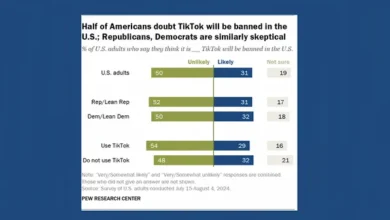
Snap Inc. has announced a new round of layoffs, with the company set to cull 10% of its global workforce as it continues to rationalize costs, and re-focus the business.
As reported by CNBC, Snap will cut around 500 roles as part of its latest cost and strategic review.
As per Snap:
“We are reorganizing our team to reduce hierarchy and promote in-person collaboration. We are focused on supporting our departing team members.”
It’s been a rough 12 months for the company, with Snap also culling 20% of its workforce, or 1,200 employees, back in August, as it works to offset its ad revenue losses, and streamline its operations. Snap also shut down its ARES external AR project in September, resulting in more job reductions.
Amid the various cuts, Snap has also had to shelve several of its side projects, including its Pixy drone camera, which it shut down after just four months on the market. Though, in retrospect, it’s lucky that it did, because last week, Snap announced a recall of all of its Pixy drone devices, due to a fire risk with the included battery packs.
That recall will add more outgoings to Snap’s bottom line, and with its margins already slim, it needs to restructure, where it can.
Part of the problem for Snap is that it’s not generating income where it’s seeing increased user interest.
The company did return to positive growth in Q3, with its overall revenue increasing 5% year-over-year to $1.19 billion. And while Snap also added more users in the period, virtually all of its user growth is now coming from its “Rest of World” segment, with Indian users, in particular, on the rise.

The problem for Snap is that its average revenue per user is still down on what it had been, and has actually reduced within that key growth segment.

As you can see, Snap’s still heavily reliant on North American users for its income, and it’s not seeing increases in that segment.
I’d hazard a guess that in Q4, which Snap will report this week, those figures haven’t improved in any significant way.
At the same time, the company’s costs continue to rise.

Snap is working to reduce its infrastructure spending, through revised deals with Amazon and Google, but as it continues to add users, there’ll inevitably always be a level of crunch at the top end, where capacity needs to be maintained, and income, ideally, needs to rise in-step.
Snap had also been hit hard by Apple’s iOS update, though its systems are improving, while Amazon, one of Snap’s biggest advertisers, also significantly reduced its ad spend in the app last year.
In combination, Snap’s business is seemingly struggling, which could see it go through more pain before it’s able to get its processes back on track.
How will that impact Snap’s growth, and its development of new projects, like its AR glasses, which Snap CEO Evan Spiegel says remain a priority?
It’s impossible to say, while another element that’s impacting Snap’s ongoing prospects is the value of its audience, with Snap still unable to hold its appeal with users once they reach a certain age.

Can it come up with a plan to recover this, and will it still be a key player in the next AR shift, which is now seemingly gaining momentum due to the launch of Apple’s Vision Pro device?
We’ll learn more when Snap publishes its Q4 and full year performance update this week.
Source link




